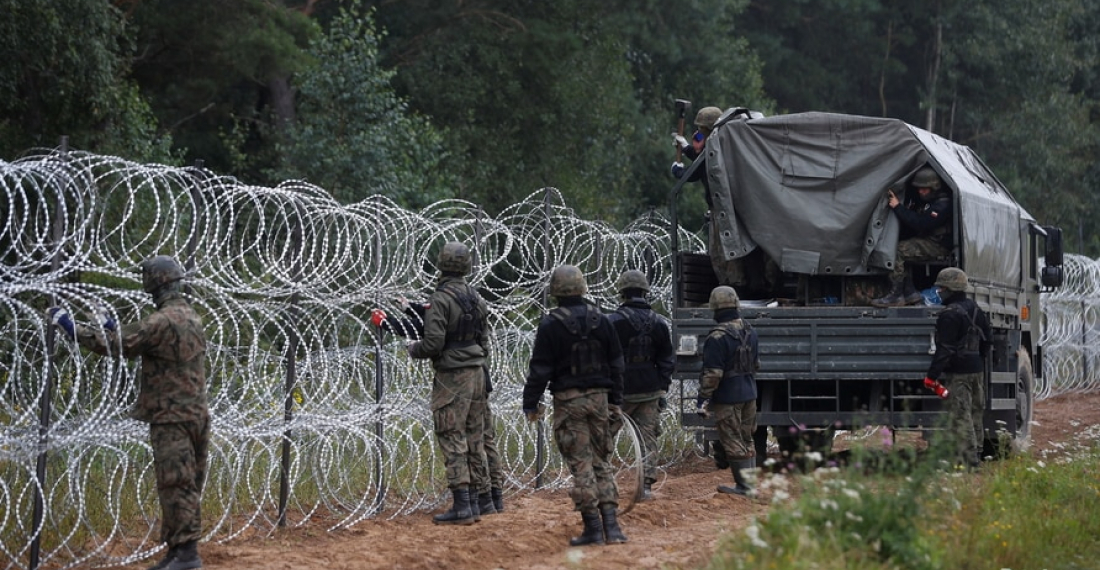In Poland the government, led by the prime minister, Mateusz Morawiecki, wants to announce a 30-day state of emergency in two regions on the border with neighbouring Belarus. Morawiecki spoke of a "crisis situation" at the border, where the authorities say large numbers of migrants are trying to enter the European Union.
"The council of ministers has decided to ask the president to declare a 30-day state of emergency", Morawiecki told reporters on Tuesday (31 August).
Last week, Poland began constructing 180 kilometre-long fencing to stop the influx of migrants. This is intended to close off about half of the border region between the countries. The government has also sent thousands of soldiers to the border to support border guards.
The state of emergency gives authorities more powers to restrict people's movement, among other things. The president of Poland, Andrzej Duda, still has to approve the government's request, but he is not expected to obstruct it.
In recent months, thousands of migrants, mainly from the Middle East, have entered the European Union from Belarus. Polish border guards said that more than 3.200 people tried to cross illegally into Poland from Belarus in August alone. The authorities in Poland and the Baltic states believe that the regime of the president of Belarus, Alexander Lukashenko, is encouraging illegal migration in order to destabilise neighbouring countries.







